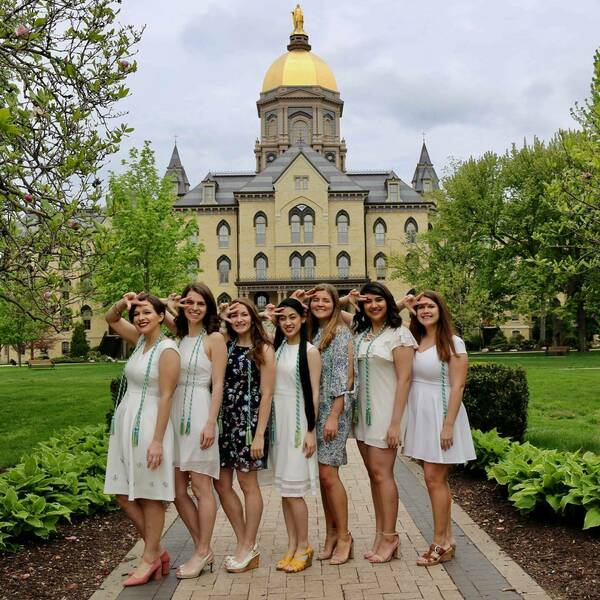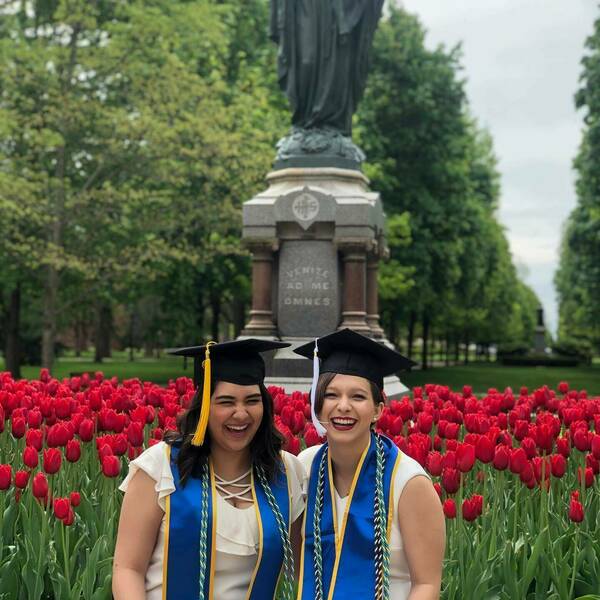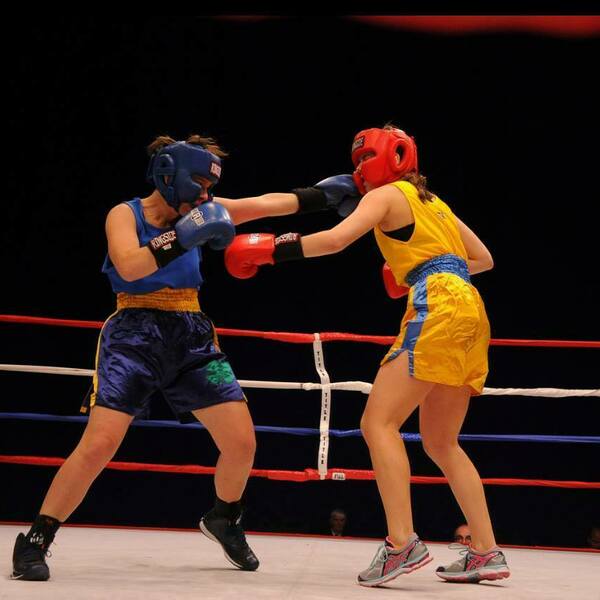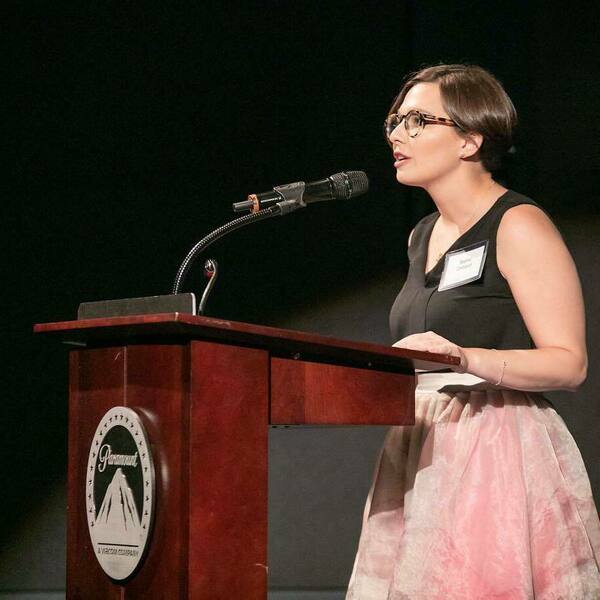Editor’s Note: Domer Diaries is a storytelling series from the Alumni Association where members of the Notre Dame family tell their stories in their own words. This week’s Domer Diaries comes from Sophia Costanzo ’19, a filmmaker based in Los Angeles. Her most recent short film, Good Cuban Girls, was released in 2022 and was named Best Family Short at the 2022 Culver City Film Festival and Best Student Film at the 2022 Shawna Shea Film Festival.
Name: Sophia Costanzo
Class Year: 2019
Residence Hall: Farley Hall
Major: Film, Television, and Theatre
Student Activities: Baraka Bouts, RA in Farley
Local Notre Dame club or affinity groups: Notre Dame Club of Los Angeles, Hispanic Alumni of Notre Dame
In filmmaking, what types of stories are you hoping to tell and why?
I grew up in a Cuban American family that passed down their culture and tradition through oral storytelling. Every day after school, my sister and I would sit with my grandma while she cooked Cuban food and told us stories about her life growing up in Havana. These stories inspired me to become a storyteller, and ultimately, a filmmaker. My hope is to bring more Latina representation to the screen. It is important to me as a filmmaker to tell authentic stories that represent the communities I came from and to share those stories with others. Latinos are one of the largest theater-going groups and yet one of the least represented groups on the screen. The stories I tell work to change that. I hope to expand more on these stories and focus on themes of identity, generational influences, and what it means to leave home.
I also grew up playing sports, from being one of the only girls on my Little League baseball team to falling in love with playing basketball and then boxing with Baraka Bouts at Notre Dame. Most sports movies I grew up with had male leads, and I hope to bring more representation to women in sports through my stories as well. Ultimately, when I write, I do my best to tell stories that bring underrepresented groups to the forefront in genuine ways and hope that viewers can learn something new about a different community when they watch.
What accomplishments have you been most proud of in your career?
In my last year of graduate school at Loyola Marymount University, where I received my MFA in Film and Television Production with a concentration in directing, I completed my thesis short film, entitled Good Cuban Girls. Good Cuban Girls tells the story of Samantha, a second-generation Cuban American who must come to terms with telling her family that she is leaving home for college despite them wanting her to stay close to home in Los Angeles. The characters in the film are inspired by the four generations of Cuban women in my family that I grew up with — from my great-grandmother to me. In search of the perfect Cuban actresses to play the great-grandmother and grandmother in the film, I asked my great aunts, who left Cuba in the 1960s, to act even though they had never acted before. The film was shot over the course of six days, with the entire movie taking place in a car. Not only was filming in a car difficult, but it was my first time working with non-actors. I am extremely proud of my cast and crew on the film, and proud to be able to share this part of my heritage and story with others. The film has screened at a variety of film festivals, including the Academy Award-qualifying LA Shorts International Film Festival, and most recently screened in Indianapolis as a part of the Indy Shorts Festival. The film will be distributed on a Latino streamer later this year, and I have since written a feature version of the short that expands on the characters and their world. My goal with my films is to share more Latina-driven stories, and we accomplished that with Good Cuban Girls.
What did you learn from Notre Dame that helps you today?
Most people are surprised when I tell them that I left Los Angeles for four years specifically to study film at Notre Dame. But when I look back at my time in FTT, I know that I made the right choice. While I learned technical filmmaking skills, the best thing I took away from my time in FTT was to tell stories that I was passionate about that only I could tell. It wasn’t so much about entertaining for the sake of entertaining, but my professors encouraged me to look at the stories I was telling and really dive into why I was telling them.
I took this value with me to graduate school, where I focused on telling stories that I was proud of and that brought more representation to the screen for underrepresented communities. Remembering Cuba, my thesis film for FTT, was supported by my advisor, Bill Donaruma, who encouraged me to tell my family’s story of what it was like to leave Cuba. I received grants through Notre Dame to travel around the United States and film interviews with my family and to go to Cuba to see where they were from.
When I was 14, I took my very first film class through a grant from the American Film Institute that my eighth grade class received. That was the first time that someone had looked at me and told me I could be a director. Before that, I loved making short films with my sister and cousins, but I didn’t realize it could be my vocation. I never saw myself, a young Cuban American girl, in front of or behind the camera, and Notre Dame became a place where I could start to tell stories that I know my younger self would be proud to see herself in.
Originally published by at weare.nd.edu on June 12, 2023.



